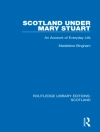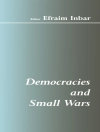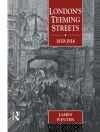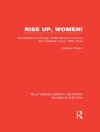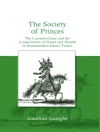This collection situates the North-East within a developing nationwide account of British musical culture.
Music in North-East England provides a wide-ranging exploration of musical life in the North-East of England during the early modern period. It contributes to a growing number of studies concerned with developing a nationwide account of British musical culture. By defining the North-East in its widest sense, the collection illuminates localised differences, distinct musical cultures in urban centres and rural locations, as well as region-wide networks, and situates regional musical life in broader national and international contexts.
Music in North-East England affords new insights into aspects of musical life that have been the focus of previous studies of British musical life – such as public concerts – but also draws attention to aspects that have attracted less scholarly attention in histories of early modern British musical culture: the musical activities and tastes of non-elite consumers; interactions between art music and cheap print and popular song; music education beyond London and its satellite environs; the recovery of northern urban soundscapes; and the careers of professional musicians who have not previously been the focus of major published musicological studies.
STEPHANIE CARTER is a music historian and archivist.
KIRSTEN GIBSON is Senior Lecturer and Head of Music at Newcastle University.
ROZ SOUTHEY is a music historian and novelist.
CONTRIBUTORS: Stephanie Carter, Kirsten Gibson, Roz Southey, Diana Wyatt, Magnus Williamson, Matthew Gardner, Simon D.I. Fleming, Christopher Roberts, Eleanor Warren, Andrew Woolley, Stephen A. Marini, Amanda Eubanks Winkler, Amélie Addison, Barbara Crosbie, Oskar Cox Jensen.
Зміст
Introduction – Kirsten Gibson and Stephanie Carter and Roz Southey
‘All Mynstralles betwene the Ryvers of Trent & Twede…yerely resorte vnto this towne and Borough of Beverley’: Examining the Evidence for Beverley as the Late-Medieval and Early Modern Centre for Professional Musicians in the North-East – Diana Wyatt
Recovering the Soundscape of pre-Reformation Newcastle upon Tyne – Magnus Williamson
The Selection, Acquisition and Performance of Handel’s English Odes and Oratorios in Mid-Eighteenth-Century Durham – Matthew Gardner
Compositional Activity in Durham City 1750-1810: Its Influences and Impact – Simon D. I. Fleming
‘I esteem my lot fortunate, in residing in this happy country’: Edward Miller, Social Networking and Music Making in Eighteenth-Century Doncaster – Christopher Roberts
The York Antiphonal: History, Liturgy and Use in the Late Fifteenth Century – Eleanor Warren
Tunes for Violin or Recorder Collected in North-East England and London in the Late Seventeenth Century: The Provenance and Contents of the Blakiston Manuscript (GB-Lbl Add. MA 17853) – Andrew Woolley
From Newcastle upon Tyne to Colonial Carolina: Transatlantic Tune Transmission and Durham Hills’s
The Cashaway Psalmody (1770) – Stephen A. Marini
Schoolboy Performance in the post-Reformation North-East – Amanda Eubanks Winkler
Amateur Music Making Amongst the Mercantile Community of Newcastle upon Tyne from the 1690s to the 1750s – Stephanie Carter – Kirsten Gibson
The Household Band of the Bowes of Gibside, County Durham, 1722-1760: Configuration, Repertoire, Training and Use – Roz Southey
William Shield’s
A Collection of Favourite Songs (
c.1775) – Amélie Addison
Between the Broadside Ballad and the Folksong: Print and Popular Songs in Eighteenth-Century Newcastle upon Tyne – Barbara Crosbie
‘Canny Newcassel’: Marshall’s Musical Metropolis of North Britain – Oskar Cox Jensen
Про автора
Dr STEPHANIE CARTER is a Research Associate on ‘Music, Heritage, Place: Unlocking the Musical Collections of England’s County Records Offices’, an AHRC-funded collaborative project between Royal Holloway, University of London, and Newcastle University. Her research focuses on musical culture in early modern England, particularly around music ownership, circulation and trade. She is also Archivist/Librarian at Carlisle Cathedral.


